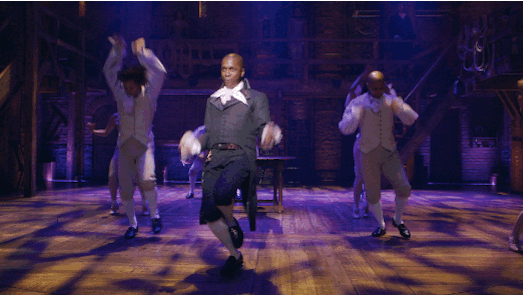The Room Where it Happens

There’s a showstopping jazz number in the second act of the little-known musical Hamilton in which Aaron Burr (the incandescent, Tony-nominated Leslie Odom Jr.) gets real and raw about his desire to be “in the room where it happens.”
A ‘Hamilton’ Star’s Story: How Leslie Odom Jr. Became Aaron Burr, Sir
Burr has just discovered Hamilton, Madison, and Jefferson have conspired to move the U.S. capital from New York to Washington, D.C. — a deal that secures Hamilton the votes to pass his financial plan through Congress (the “Compromise of 1790,” apparently). History is so sexy, guys.
Logan asked me once, lolling on my couch in the middle of episodes of The Great British Bake-Off, what my “room” was. It’s a question that goes straight to the heart of so much of our professional posturing. Burr wants in, not necessarily because he believes that’s where he’ll do his best, most serious work, but because that’s where the action is. He wants to ascend, he wants to be known. His ambition — blind, unrooted — is on full vaudevillian display here. What Logan was asking is not “what kind of work will give your life meaning,” but rather “what kind of work will make other people believe your life has meaning.”
My room is the one inhabited by the cabal of female writers in their 30s who seem to produce endlessly, who circle each other on social media with an easy familiarity, who are intelligent and beautiful and heard. It’s a room that is tantalizingly close, and therefore the fact I can’t get in is all the more debilitating. And the striving makes it worse, frankly: it strips the voice from my work, makes me focus on the outcome rather than the effort, gives my whole presence a sheen of sweaty desperation.
I’ve read enough advice columns to know the answer is “keep your head down and do the work,” but it’s hard — especially since I believe a bit of focused striving is essential to inching closer to your goals.
So, here’s my question: what’s your room? And how — if ever — do you become okay with being on the other side of the closed door?
Support The Billfold
The Billfold continues to exist thanks to support from our readers. Help us continue to do our work by making a monthly pledge on Patreon or a one-time-only contribution through PayPal.
Comments